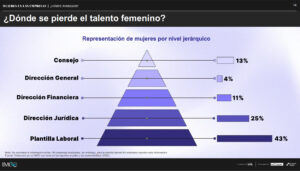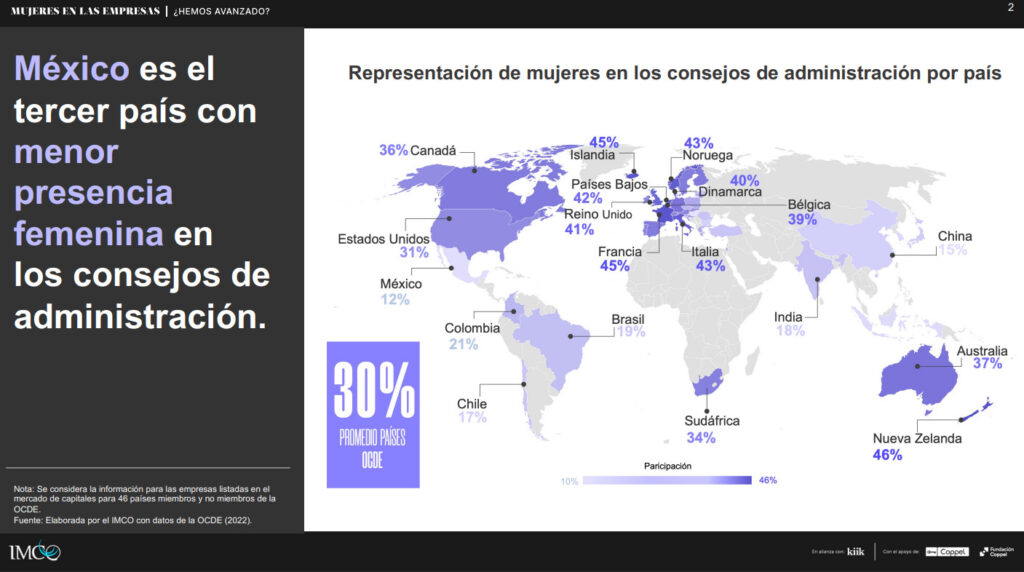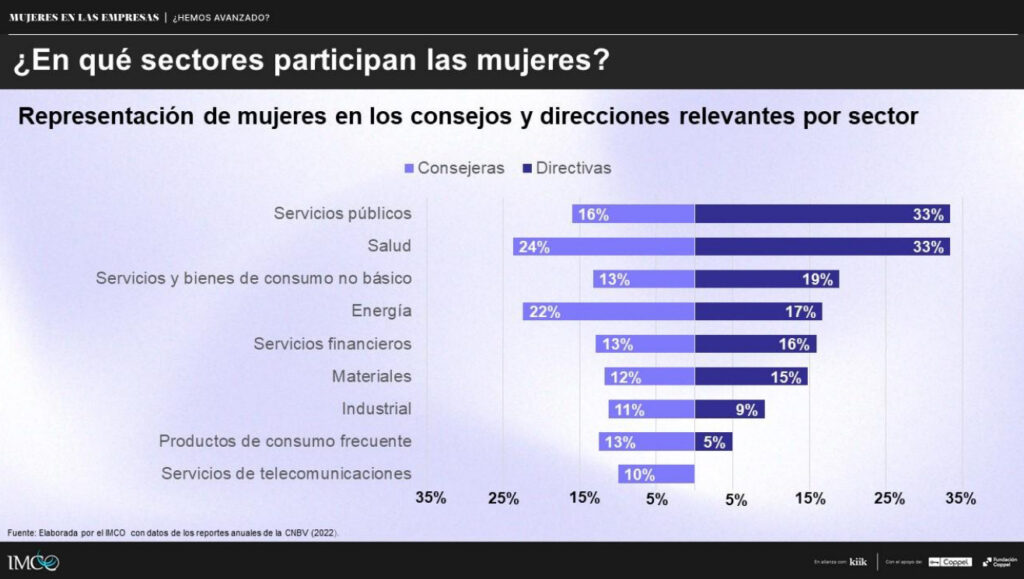The women gradually become more involved in the most senior positions in companies, but the pace at which this issue is advancing in Mexico is so slow that it would take 30 years to reach the gender parity within the corporate boards of directorssaid the Mexican Institute for Competitiveness.
That is why this non-profit research center proposes four ideas that will help bring more women into the labor market, accelerate the pace at which progress is currently being made, and ensure that it does not take so long to balance the participation of women and men in top management positions.
- Measure and identify the hierarchical level where women's talent is lost, but above all understand the causes behind it.
- Improve the reporting of information with a gender perspective, both in the guidelines established by the National Banking and Securities Commission and in the information reported by the issuers.
- Institutionalize corporate governance of family and public companies including gender metrics.
- Implement good practices of inclusion of women, e.g., flexible work arrangements or leadership commitment to gender equality.
These approaches were made by the IMCO after learning the results of an analysis carried out in partnership with Kiik Consultants to measure the participation of women from the workforce to the board of directors in 184 companies listed in the capital and debt markets on Mexico's stock exchanges in 2022.
Although 43% of the workforce of these companies is made up of women, they occupy 13% of the relevant directorates.

"We conclude that, although there are advances in female participation in senior positions, these are slow, because if the current trend continues, parity on boards of directors will be achieved within 30 years," he stressed.
According to the Organization for Economic Cooperation and Development (OECD)Mexico is the country with the third lowest presence of women on boards of directors, after Estonia and Hungary.

The hard data of the study
On boards of directors:
- On average, 13% of board seats are held by women, up one percentage point from 2021.
- 3.7% of them are independent directors, which indicates the low possibility of accessing a board without having a direct relationship with the company or being a shareholder.
- 7% of boards of directors are chaired by a woman
- 24% of companies have an all-male board, down three percentage points from the previous year.
In relevant directions:
- In Mexico, 4% of the general managers are women, a phenomenon that occurs even in countries with greater gender equality.
- Women represent 13% of the total relevant directorates, i.e., general management, finance and legal areas.
- Compared to 2021, there is a greater presence of women in the legal (25%) and finance (11%) areas.
- Only 1% of the companies have women in the three relevant directorates, compared to 69% companies with only male leadership at this level.
The IMCO and Kiik Consultors study revealed that the economic sectors with the highest female participation in relevant positions are health and public services (33%), while in telecommunications they have no participation.
A similar situation occurs in the boards of directors: the utilities sector has the highest female participation (24%), followed by energy (22%) and health (16%), while the telecommunications sector has the lowest participation of women on its boards (10%).

It is worth noting that the three inclusion policies most frequently reported by the companies analyzed are: providing continuous training on different topics such as leadership or gender awareness (74%), having protocols against workplace violence and harassment (73%) and implementing a diversity policy in work teams (57%).
Source: IMCO


